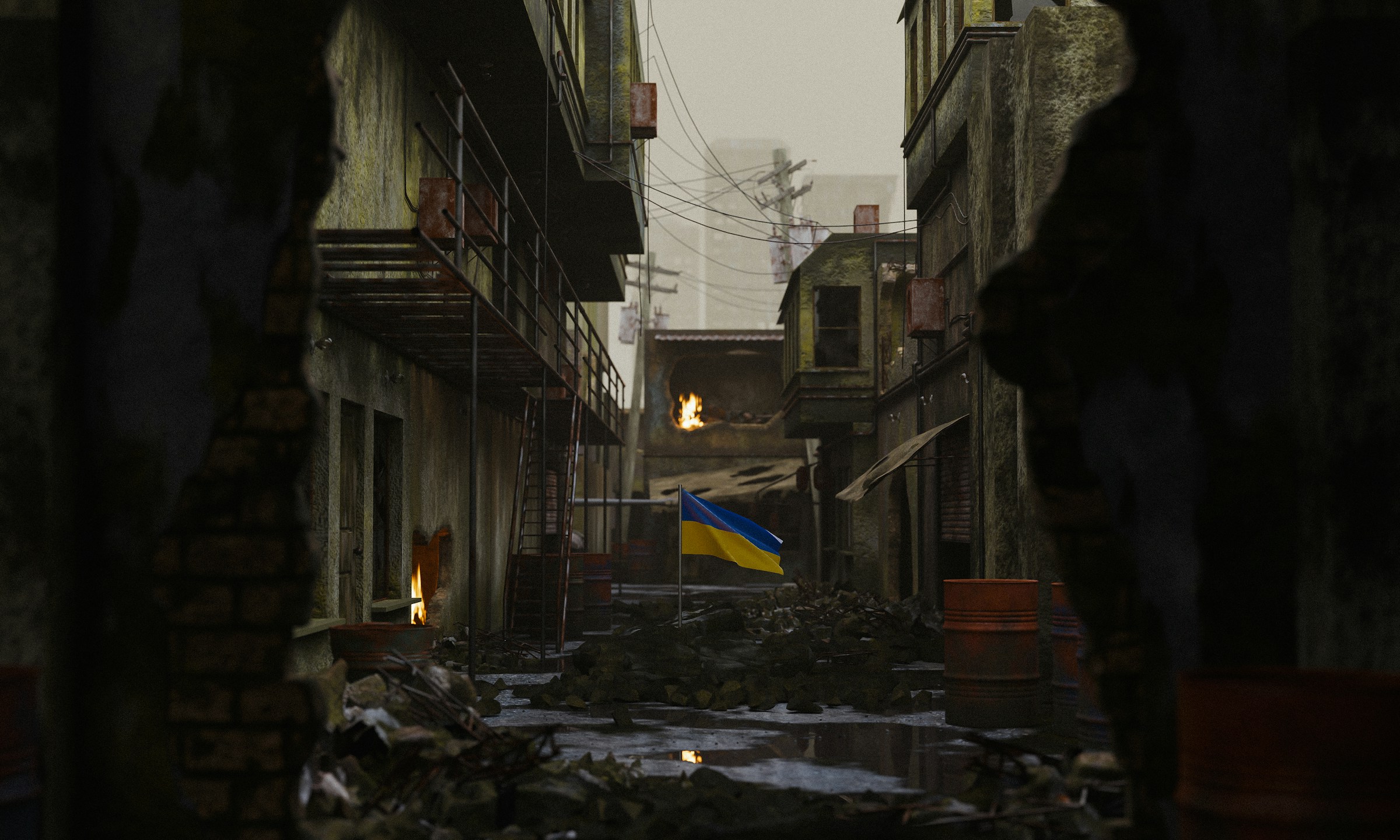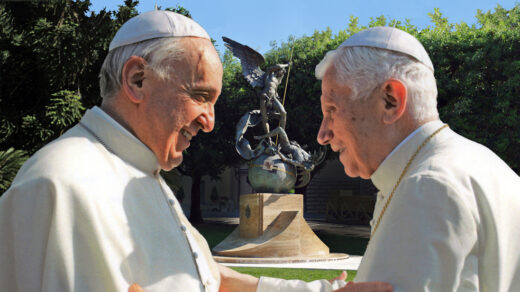Two years ago, Russian forces attempted a Hitlerian blitzkrieg in Ukraine. According to Russian dictator Vladimir Putin, its goal was to eradicate Ukraine: both the Ukrainian state and the Ukrainian nation, with its distinctive language and culture. The blitzkrieg failed, thanks to an epic Ukrainian resistance, defined by Homeric acts of valor and sustained by remarkable social solidarity. Thus one irony of Putin’s war: The Ukrainian nation is more united than ever, its steely resilience and will to prevail forged in a Russian blast furnace.
The price paid by Ukraine is incalculable. No one knows exactly how many Ukrainian soldiers, reservists, volunteers, and civilians have died; the numbers are certainly in the hundreds of thousands. The Russian way of war—including wanton destruction of economic infrastructure, schools, hospitals, and cultural centers—has caused what is likely a trillion dollars’ worth of damage, even as Russian forces have made Ukraine the world’s largest minefield, which will take decades to clear. As many as fourteen million Ukrainians have become international refugees or internally displaced persons; yet there are no refugee camps, in Ukraine or its European neighbors, as those with homes have opened them to their fellow citizens or allies. As Archbishop Borys Gudziak of the Ukrainian Catholic Church put it recently, “In the winter of 2022–23, when Putin damaged or destroyed 40 percent of Ukraine’s electricity network, no one froze. People literally shared their warmth.”
Ukraine’s churches have not been spared: Some six hundred houses of worship have been damaged or destroyed in the past two years. Where Russian forces hold Ukrainian territory, religious freedom has been extinguished for Catholics, Protestants, Jews, Muslims—and those Ukrainian Orthodox who will not bend to the Russian Orthodox patriarchate of Moscow, whose leader, Patriarch Kirill, echoes the jihadist language of Sunni and Shia Islam in his blasphemous support for Putin’s genocidal war.
And yet Ukraine remains unbroken.
No one with a heart or soul could possibly watch a brief, ninety-second video of Ukrainians wounded in the war and not be moved to respect and admiration for such people: an eight-year-old boy with terrible facial burns taking dancing lessons; amputee children and adults, most with prostheses, swimming, running, learning martial arts, holding their newborn children—all amidst a devastating war. Yet there are Americans—including lawmakers and one prominent presidential candidate—who continue to imagine, somehow, that there is a morally and politically acceptable outcome to this struggle that does not involve the defeat of Putin’s determination to reconstitute the Russian Empire: an ambition that does not stop at the borders of the late, unlamented Soviet Union.
There are also Americans who continue to swallow Russian propaganda hook, line, and sinker: becoming, in effect, Putin’s political enablers in the United States.
The Russian war on Ukraine was preceded for years by a massive disinformation campaign, using troll farms to flood the internet and social media with lies: among them, that a murderous tyrant, who assassinates domestic critics while causing mayhem outside Russia’s borders, is somehow a defender of “Christian civilization.” American vulnerability to Russian propaganda has a long, tawdry history, dating back to John Reed’s journalistic celebration of the Bolshevik Revolution and continuing with Walter Duranty’s New York Times cover-up of Stalin’s deliberate starvation of millions of Ukrainians in the Holodomor of 1932–33. That trajectory of malfeasance has now reached a grotesque nadir with Tucker Carlson playing the lickspittle, allowing Putin the preposterous claim that Poland had itself to blame for getting invaded by Hitler in 1939.
The contemporary Russian propaganda barrage has had its effects in a dysfunctional U.S. Congress. Ukraine’s determination to survive, underwritten in blood, has degraded Russia’s military, strengthened NATO, called Europe to its senses, and thereby made a significant contribution to the security of the United States: an immensely wealthy country in which $92 billion was spent betting on football, basketball, and baseball in 2022–23. Politicians arguing that we cannot afford to support Ukraine militarily, or who insist on linking military assistance to Ukraine to the resolution of their domestic policy grievances, are either delusional or unwilling to explain the geopolitical facts of life to their constituents.
In either case, they might take a lesson from Arthur Vandenberg.
Sen. Vandenberg, a budget-balancing Republican fiscal conservative, opposed many New Deal and Fair Deal programs during the Roosevelt and Truman administrations. But when President Truman sought his support for the Marshall Plan and NATO, Vandenberg didn’t demand in return the repeal of one of his bugbears, the National Labor Relations Act. Arthur Vandenberg was an adult. Would that there were more of them in Congress today, standing in solidarity with our unbroken Ukrainian friends and allies.
Ten tekst został opublikowany na łamach portalu First Things 21.02.2024




